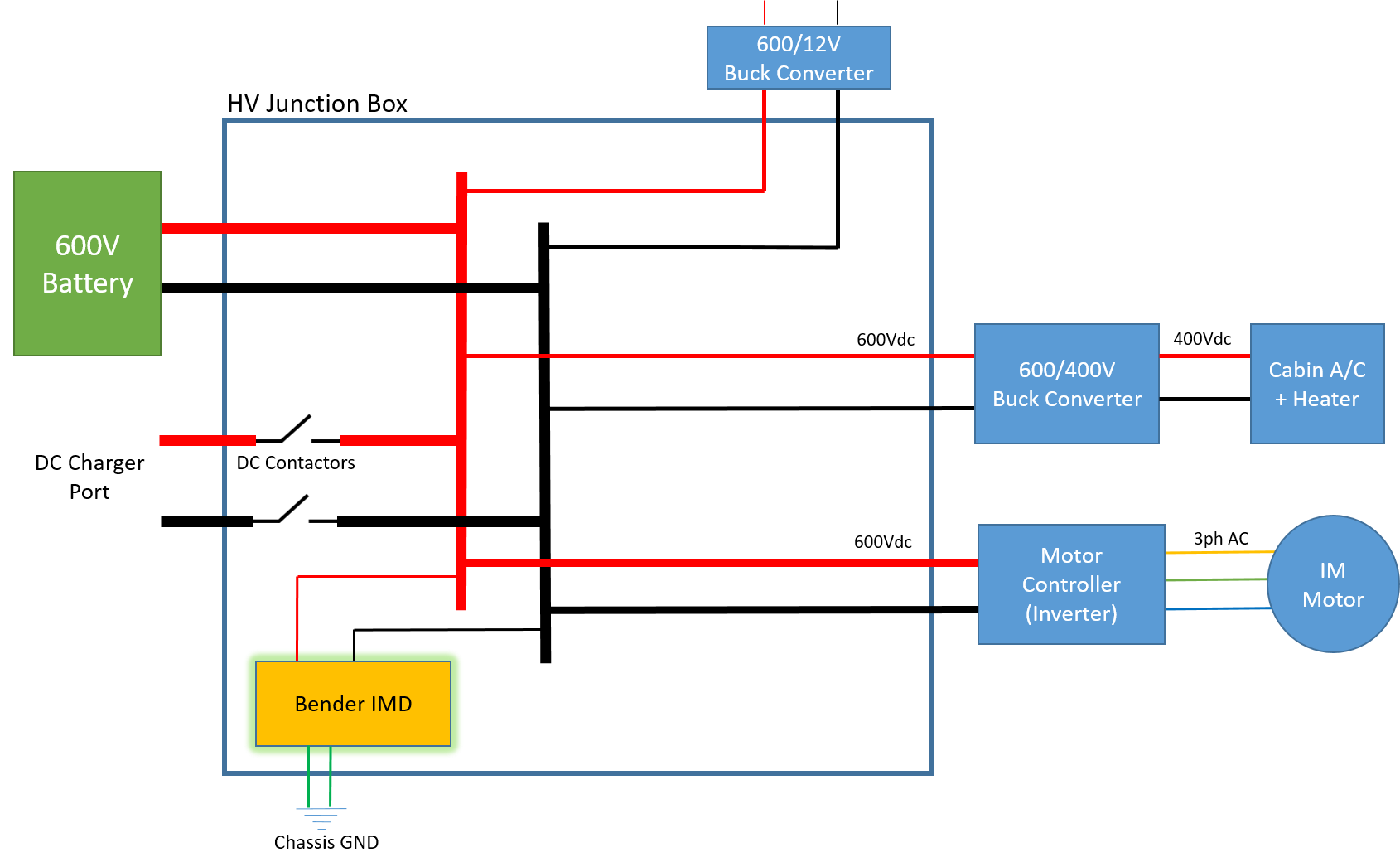Good day to all!
I am planning on designing an electric vehicle architecture from scratch. My main DC bus voltage is 400 V. However, I have got different voltages in my system. I have got a 600/400 V buck converter to supply my air conditioning compressor and I have got a motor inverter that outputs 3 phase AC supply.
To make myself clear, I am attaching an image of my high voltage junction box.

With this architecture, I have a confusion about monitoring the insulation resistance of my high voltage bus. I am currently planning to keep an insulation monitoring device (IMD) from Bender (Isometer IR155-3203).
I would like to know whether I need separate IMDs for my 400 V supply to the air conditioning as well as the 3 phase AC supply to my motor. Do I need to be concerned about multiple voltages in the same system? If not, what can I do detect a break in the insulation at any point in my HV bus? I hope my question makes sense, if it doesn't please let me know.
PS: The image is just for representation. Please let me know if you need more details.
